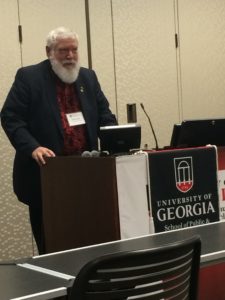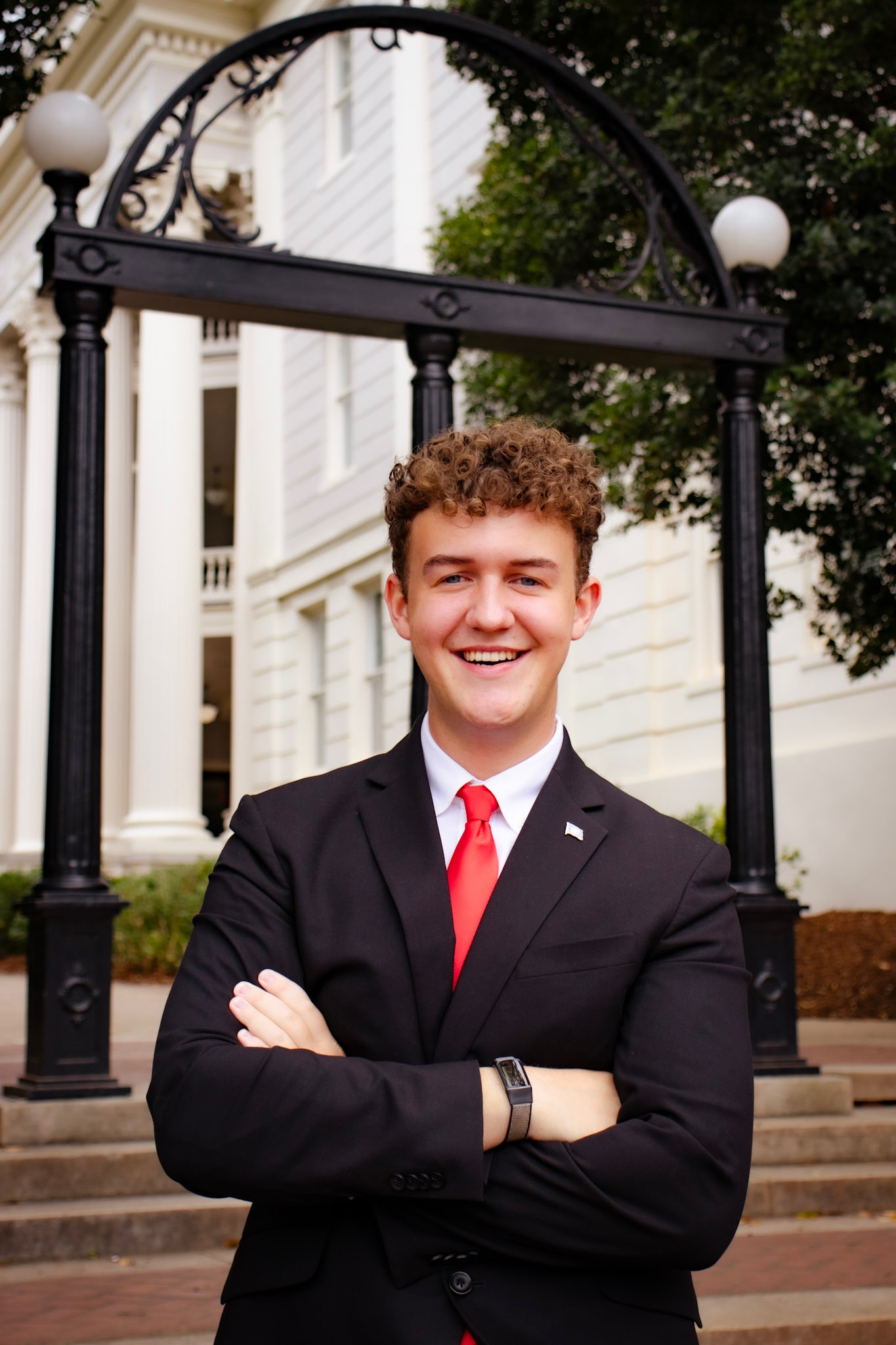
Some of the country’s top political scientists gathered at the University of Georgia’s Center for Continuing Education last week to honor UGA political science professor Keith Poole on his 70th birthday and to talk about how political polarization has reached unprecedented levels in the United States.
Poole invented a revolutionary, and now widely accepted, method of measuring polarization in Congress, said Tom Lauth, retired former dean of UGA’s School of Public and International Affairs.
“He’s been one of the real innovators in political science with regard to how we study ideology in American politics,” Lauth said of Poole, a member of the elite American Academy of Arts and Sciences.
“He has roll call vote data from every session of the U.S. House of Representatives since the beginning of the republic,” said Lauth, who was the school’s first dean and was dean when Poole accepted UGA’s Philip H. Alston Distinguished Chair in the department of political science. “He literally invented the statistical methodology to allow them to analyze this massive database and communicate to us about ideology in Congress.”
Called “Nominal Three-Step Estimation,” or by the acronym NOMINATE, the method Poole developed with Howard Rosenthal, his co-author of 35 years, gave political scientists a sound way to measure choice data, such as Congressional voting.
Congress has become increasingly polarized in the past several decades and has now reached an unprecedented point in U.S. history – to a degree that threatens Congress’ ability to govern.
Poole spoke at the end of Friday’s conference, tracing his career and describing how he, Rosenthal and others worked together.
A few months ago, Poole doubted he would live long enough to see this conference due to a health issue, but a physician’s diagnosis and treatment have helped, he said.
In some ways more a mathematician and coder than a traditional political scientist, Poole said he’s looking forward to tackling a new programming puzzle in July.
Poole came to UGA seven years ago when the university offered him “dump trucks loads of money,” he said.
But Poole has given a lot of that money back, said Lauth and John Maltese, chair of UGA’s political science department.
“He’s been very public-spirited,” Maltese said.
Another reason Poole cites for joining UGA was his admiration of the Southern military tradition. A Vietnam veteran, Poole served with both black and white Southerners in the war, he said.
The Alston chair comes with money for research, and Poole has often used it to support graduate students and junior colleagues, or to bring in speakers and sponsor research conferences.
About 50 people came to last Friday’s event, more of a scholarly conference than a typical birthday celebration. Researchers from some of America’s top universities – including Princeton, UCLA and Stanford – talked about their current research.
“Some of the best minds in American political science are here,” Lauth said.
They didn’t disagree that politicians have gotten more extreme in their political stances than voters, especially after former Georgia Congressman Newt Gingrich engineered a Republican takeover of the House of Representatives in 1994, when Republicans became the majority party in Congress after more than 40 years of a Democratic reign.
But there was less agreement over just why legislators have drifted so far apart in their views.
One researcher suggested changes in TV and other media, such as the emergence of the conservative Fox News network, might have played a role, while another countered that the relationship might be the other way around – that increasing polarization might have changed the media.
It’s not just the House of Representatives that’s become polarized along party lines, said Boris Shor, one of the scholars who gave research reports during the conference. State legislatures have also become increasingly polarized, he said.
And Democrats are polarizing faster than Republicans, Shor noted.
But it might look that way simply because Republicans were the first to shift as the party moved to the extreme right, another researcher said
One consequence of polarization is that moderate politicians have disappeared from both parties, said another researcher, Gary Cox of Stanford University. Cox and another Stanford political scientist, Adam Bonica, have been studying why moderate legislators have become an endangered species.
Competition for majority status in Congress stepped up sharply after 1994 and parties now strategically “nationalize” competitive seats in congressional elections as they pursue a majority, Cox said.
For the original story, click here: http://onlineathens.com/local-news/2017-05-29/scholars-honor-uga-s-keith-poole-who-tracked-rise-political-polarization








